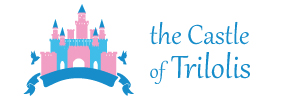In completing the Pre-Kindergarten – Kindergarten class, the children develop basic communication, creative and critical thinking skills; they discover their personal identity and achieve a sense of autonomy. The children in this age group learn to communicate with their peers and with adults; they manage to develop friendships and the ability to work as a part of a group within a framework of rules to ensure harmonious coexistence.

Our goals
Our goal is to support the children’s well-rounded physical, linguistic, cognitive, sensory, emotional and social development. These aspects are nurtured mainly through play that integrates learning experiences, allowing the children at whatever level they may be to develop normally and to establish strong foundations upon which their future education will be built.
The children are introduced to the letters of the alphabet and to numbers, and are encouraged to start writing them on paper. The lending library and the mythology taught in this class help the children expand their knowledge and stimulate their imagination, while participation in dramatic play, role-playing, puppetry, visual arts and music helps them cultivate their creative and social skills.
Learning language – A to Z!
In this group, the children engage in a wide variety of activities, though language and communication are at the center. In morning discussion (group talk), the children learn to narrate experiences by sharing their news. This encourages them to use time references (before, after, yesterday, tomorrow) as they recall events they have experienced, thus enhancing their socialisation. They learn to explain, describe and interpret through a daily routine (calendar, weather, general current topic).
They also begin to justify their beliefs, actions and preferences by using basic arguments. The children learn to listen to and understand a narrative from books and stories which often acts as a springboard for a topic of discussion that follows. At the same time, their verbal and critical thinking skills are strengthened, as they are asked to respond to questions throughout the narration.
The children are introduced to the letters of the alphabet, first by sounding them out phonetically through play and then learning to write them. This helps them work on their fine motor skills. They learn to write their name and copy out words on paper as well as they can. We foster the children’s love of letters and books through the use of a lending library. Each child is asked to fill out a worksheet with their parents.
Stories & Mythology
The children are exposed to a large variety of books, depending on the topic of the week. In the Book Corner, they can choose a book to browse and to describe it to the rest of the group. Meanwhile, they are introduced to mythology, and act out the stories read to them (e.g. the gods of Olympus, the Iliad and the Odyssey, and others).




